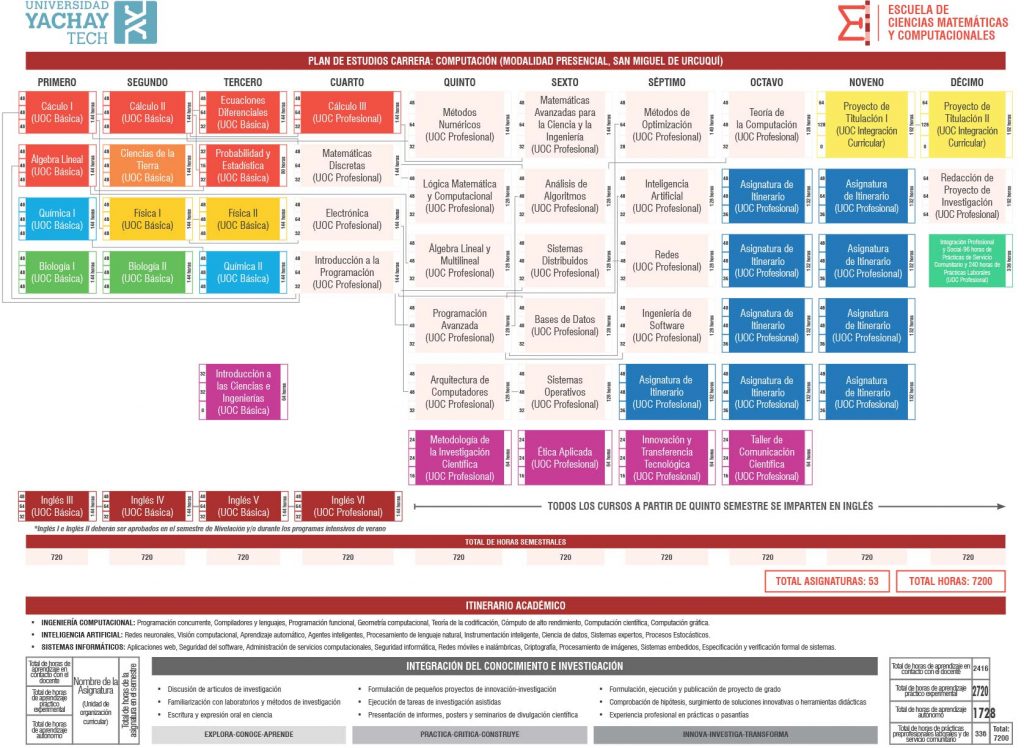
Discussion of research articles.
Familiarization with laboratories and research methods.
Writing and oral expression in science.
EXPLORE-KNOW-LEARN
Formulation of small innovation-research projects.
Execution of assisted research tasks.
Presentation of reports, posters, and seminars of scientific dissemination.
Writing and oral expression in science.
PRACTICE-CRITICAL THINKING-CONSTRUCT
Formulation, execution and publication of project of degree.
Verification of hypotheses, emergence of innovative solutions or didactic tools.
Professional experience in internships or internships.
Writing and oral expression in science.
INNOVATE-RESEARCH-TRANSFORM

The School of Mathematical and Computational Sciences has two departments. One of them, the Department of Computational Sciences, offers the degree in Computer Science Engineering.
We strive to provide great flexibility in the last two years of the study plans, allowing students to explore their own interests, either within the school or in other Yachay Tech disciplines.
Every degree program at Yachay Tech starts with a common core that includes a solid introduction to physics, chemistry, biology, and geology. The specialization consists of compulsory courses of the school, some of them shared between the departments.
The fourth year contains half compulsory courses and half elective courses, and the fifth year includes an internship and a final project leading to a thesis or capstone project.
COMPUTER SCIENCE ENGINEERING: Concurrent Programming, Compilers and Languages, Functional Programming, Computational Geometry, Coding Theory, High Performance Computing, Scientific Computing, Computer Graphics.
ARTIFICIAL INTELLIGENCE: Neural Networks, Computer Vision, Machine Learning, Intelligent Agents, Natural Language Processing, Intelligent Instrumentation, Data Science, Expert Systems, Stochastic Processes.
COMPUTER SYSTEMS: Web applications, Software security, Computational services administration, Computer security, Mobile and wireless networks, Cryptography, Image processing, Embedded systems, Specification and formal verification of systems.
Discussion of research articles.
Familiarization with laboratories and research methods.
Writing and oral expression in science.
EXPLORE-KNOW-LEARN
Formulation of small innovation-research projects.
Execution of assisted research tasks.
Presentation of reports, posters, and and scientific dissemination seminars.
Writing and oral expression in science.
PRACTICE-CRITICIZE-BUILD
Formulation, execution and publication of degree project.
Testing of hypotheses, emergence of innovative solutions or teaching tools.
Professional experience in practices or internships.
Writing and oral expression in science.
INNOVATE-INVESTIGATE-TRANSFORM;
